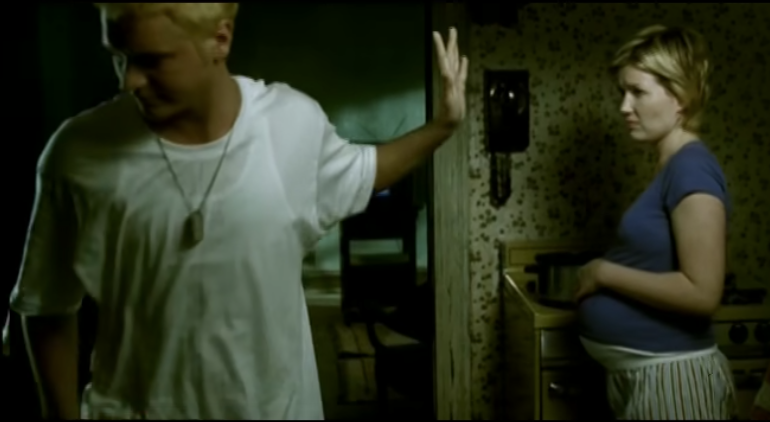Remember that part in Eminem’s song “Stan” where an ardent admirer shows his devotion by shelling out for the private meet-and-greet and getting a questionable tattoo?
Right, of course not, because it isn’t there. “Stan,” from “The Marshall Mathers LP” in 2000, is about a deranged fan who identifies too closely with the Slim Shady persona Eminem presents in his lyrics. When the rapper hasn’t answered his increasingly strident letters, Stan reacts by tying up his pregnant girlfriend, stuffing her into the trunk of his car and driving them both off a bridge. Lowercase “stan” has since become shorthand for “an extremely or excessively enthusiastic and devoted fan,” in the words of Merriam-Webster, which last month added it to the dictionary. In other words, the title of a song about a disturbed person on the action end of a murder-suicide has become a synonym for really, really liking famous people you’ve never met.
What started as a term for celebrity worship has come to encompass much more: college basketball fans stan their favorite teams during March Madness, devotees of Korean pop argue on Twitter over who’s the biggest stan, avid Game of Thrones watchers stan House Stark. There are probably cheese lovers out there right now stanning Humboldt Fog. Even Tesla founder Elon Musk has hardcore adherents who call themselves Musketeers, according to this story in the New York Times. An entire stan culture exists online (where else?), in which mostly young fans of pop stars such as Ariana Grande (Arianators), Nicki Minaj (Barbz), Beyoncé (Beyhive) or the K-pop group Blackpink (Blink) act almost as vigilantes who respond in swarms, and with vitriol, to any criticism of their celebrity icons. In an essay on Medium in January, the culture writer Haaniyah Angus described receiving mockery and threats from Grande’s fans after she tweeted a critique of the singer’s song “7 rings,” and enough people flagged her tweet that Twitter suspended her account. Perhaps a more accurate word describing that kind of behavior is “troll.”
Though stan culture has clearly taken root, and self-identified stans are proud of their outsized fervor, the whole concept downplays abusive behavior, and trivializes mental illness. The hateful invective of online harassment can sometimes include suicide baiting — that is, encouraging a target of wrath to kill him or herself. Digital hectoring isn’t the only form of abuse.
Stan and his girlfriend are fictional characters, but violence by an intimate partner is all too real: more than 30 percent of women in the U.S. will experience some form of it during their lifetimes, according to data compiled by the Centers for Disease Control and Prevention, and 16 percent of women will be stalked. Co-opting the name of an unhinged abuser, even a made-up one, into a boastful word for fandom minimizes domestic violence. Conflating adoring fans with people who are mentally ill and acting on their disturbed impulses is troubling, to say the least. Countless people, including plenty of celebrities, have had to deal with stalkers, some of whom threaten — or even attempt — violence. What, if not a stan, was the obsessed fan who murdered John Lennon in 1980, or the man who jumped onstage with a handgun during a 2004 performance by the heavy metal band Damageplan and shot to death guitarist “Dimebag” Darrell Abbott and three bystanders?
Most stans don’t stoop to violence or harassment, of course. For many, stanning a particular passion is a way of being part of a community—a virtual fanclub for the digital age. For others, it’s a self-deprecating way to acknowledge liking something that doesn’t have cachet (one music writer on Twitter recently mentioned “stanning very many ‘uncool’ ’90s alternative bands”). Yet words matter, and there has to be a better one to encompass all that without equating fandom to mental illness. Just as it isn’t funny to call a particular style of men’s undershirt a “wifebeater,” or to say a bargain-hunter has “jewed down” a price, using “stan” to describe someone’s enthusiasm evokes an ugly stereotype.
Eminem himself discourages standom in the last verse of “Stan,” which he has said was inspired by a composite of unsettling fan mail. In a level reply to the ever-more disillusioned letters, the rapper apologizes for the delay in responding, and suggests his admirer try to keep himself in check: “You got some issues, Stan, I think you need some counselin’.” By then, of course, it’s too late: Eminem realizes a few lines later that the guy who drove off the bridge is the same one who had been writing to him.
That’s not an invitation for casual irony, it’s a tragedy. But at a time when we are rightly more conscious about the impact of what we say, and how we say it, we can — and should — do better than “stan.”
